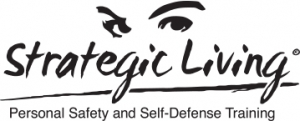“I was lucky!”
I hear this a lot, both in the media and from students. A woman or girl defends herself successfully, fights off an attacker, but then minimizes her good work by crediting chance.
You probably already know the story of one of the most crucial breakthroughs of modern medicine. Dr. Alexander Fleming inadvertently left a petri dish uncovered over a weekend. When he returned, he saw that mold had infested the dish. But before he threw away the spoiled experiment, he took a closer look and saw the mold was killing the bacteria. And thus the path to penicillin, and other antibiotics, was born.
Radioactivity was brought to light when physicist Henri Becquerel stored a chunk of uranium in a drawer besides an unexposed photographic plate. When he took them out a week later he noticed that the rock had left an imprint on the plate in the absence of light. Working with his students Marie and Pierre Curie, they discovered radiation.
And popsicles were invented in 1905, when eleven-year-old Frank Epperson left his soda-making gear outside, in the cold, overnight. The next day, the water and flavored powder mixture had frozen — along with the stick he’d used to stir the mixture. (Twenty years later, the adult Epperson applied for a popsicle patent.)
In all these instances, it took an observant person to see what most of us would call a “mistake,” and find the opportunity.
“Luck favors the prepared mind,” said by Dr. Louis Pasteur. All three were lucky, and they were prepared.
Your safety will depend, in large part, on your ability to recognize opportunities to fight back, to see an attacker’s vulnerabilities, and to exploit weaknesses. Luck in self-defense does indeed favor the prepared mind, despite so-called “mistakes.”
